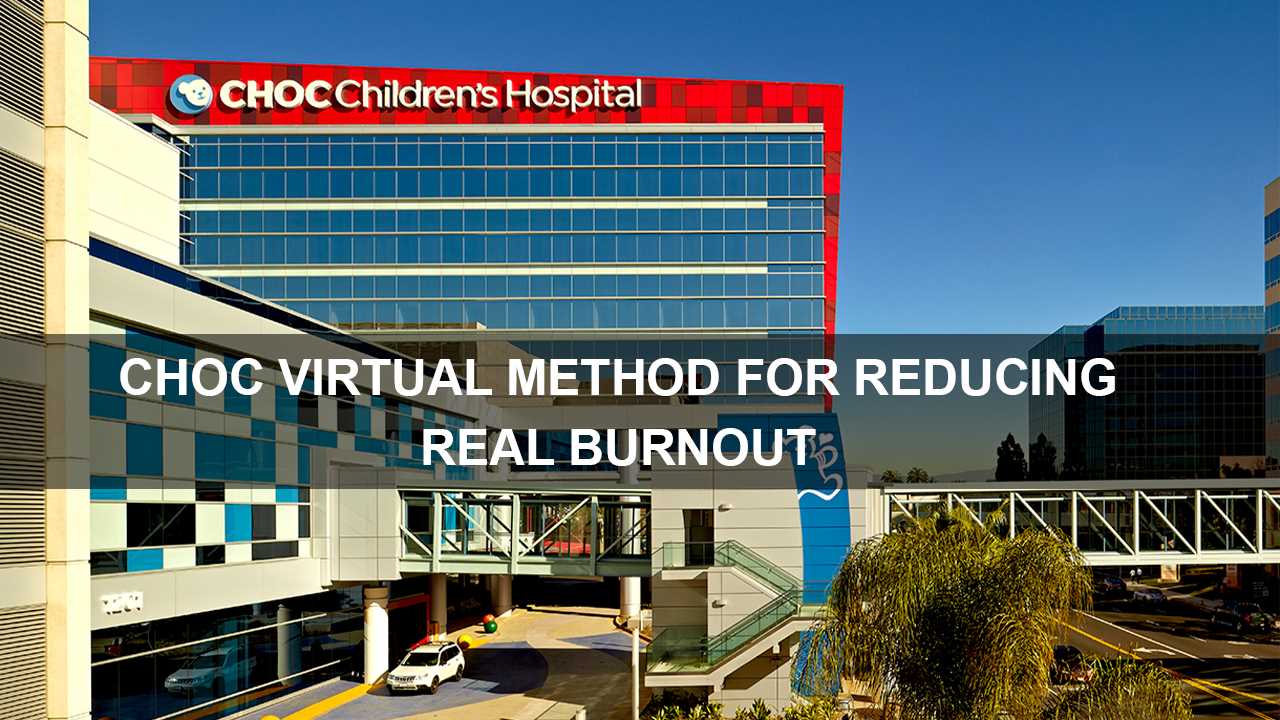For almost four minutes, while wearing a virtual reality (VR) headset, scores of Children’s Health of Orange County (CHOC) nurses and other health care workers experienced this idyllic world while on their breaks as participants in a novel study whose results were recently published.
The study, conceived of and conducted by CHOC Nursing Research and Innovation, in collaboration with Maestro Games SPC, concluded that participants reported a “significant” decrease in burnout after three sessions of the immersive classical music VR experience.
“I definitely felt a sense of well-being and being able to move ahead and complete my day,” says Susan See, nurse manager of the neuroscience unit and the multispecialty unit and one of the co-authors of the study, published in The Journal of Nursing Administration in May 2022.
“I loved it,” she says. “It was a complete diversion.”
Even before the COVID-19 pandemic began in March 2020, CHOC nurse leaders like See were looking at ways to address compassion fatigue and burnout.
“The pandemic multiplied it exponentially,” See says. “We see tough things every day. That’s the norm for us, but it’s not normal.”
The timing was perfectly aligned for the study, “Effects of Classical Music Virtual Reality on Pediatric Healthcare Worker Compassion Fatigue,” whose lead author is Jennifer Hayakawa, DNP, CHOC’s manager of Nursing Research and Innovation. The other two co-authors are John Schomberg, Ph.D., a biostatistician in CHOC’s department of nursing, and nurse scientist Jennifer Barrows, Ph.D.
Hayakawa got the idea of launching the study after spending time beta-testing the VR experience created by Maestro Games, SPC. Maestro Games’ mission is to provide a non-pharmaceutical alternative to build and maintain mental resiliency for first responders, military, health care personnel and their families who are susceptible to post-traumatic stress, moral injury, depression, substance abuse, and other forms of distress because of the demands placed on them.
“With the increasing burden of the COVID-19 pandemic on mental health, it’s imperative that health care workers have tools to manage their stress and to mitigate the psychological impact of providing compassionate care,” Hayakawa says. “We need to think outside of the box to find safe and affordable strategies to reduce burnout and secondary traumatic stress in health care workers.”
‘The Last Maestro’ VR system
In the study, 71 CHOC health care workers—83% of them nurses, more than half of them from the neonatal intensive care unit (NICU) —completed three VR sessions.
Each participant underwent one session per week during a five-week period, donning Oculus Rift or VIVE Focus headsets to disengage for five minutes.
In addition to reporting significantly less burnout after the sessions, participants also felt lower levels of stress, anxiety, caring ability and “compassion satisfaction” when a more simplified method of analysis was used, says Schomberg. “When we set the bar a little bit higher,” he says, “the one to hold up was burnout. The strongest association was with that.”

